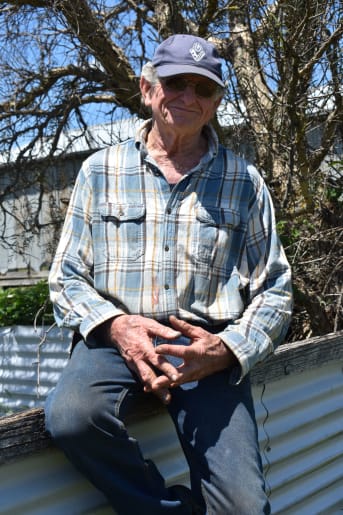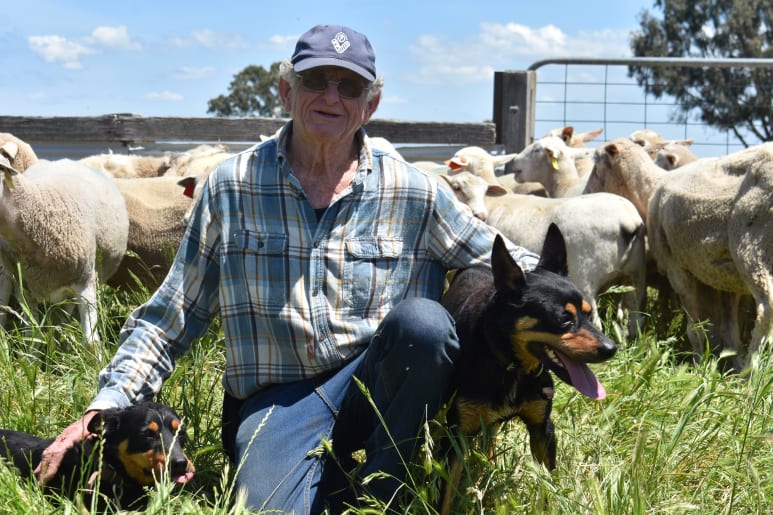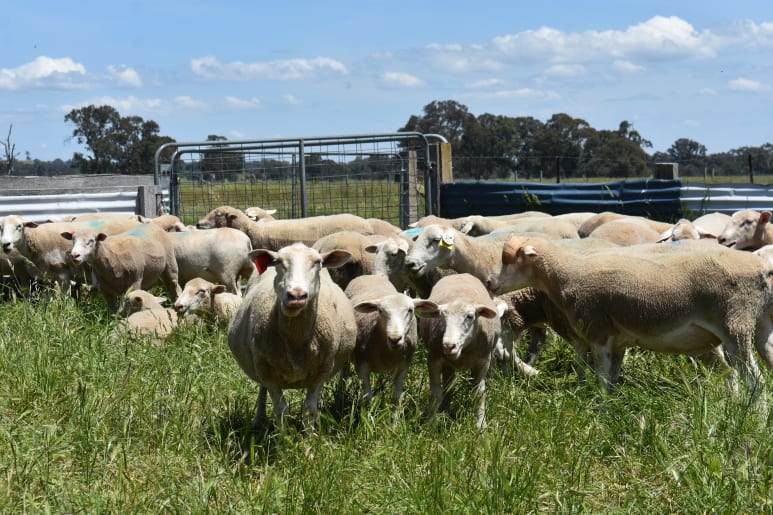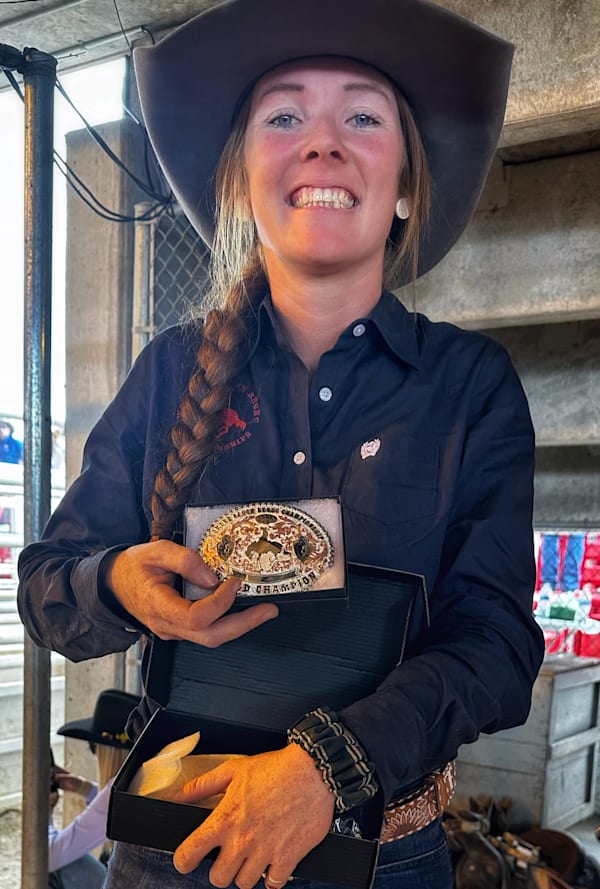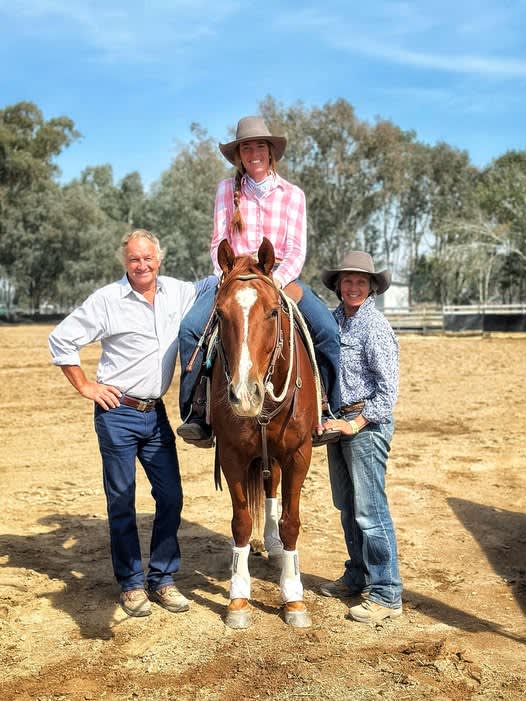SINCE Laurie Tanner was knee high to a grasshopper all he wanted to be was a farmer – and in particular a sheep grazier.
He was born and grew up in Mansfield along with his mum and dad and four siblings, so family time was always very busy.
And his dream came true, following on from his parents when they purchased their first block of land at Bonnie Doon.
Laurie’s parents then increased the size of their holding by purchasing one surrounding paddock at a time – which, when they were ready to move on, he purchased the farm from them.
He farmed at Bonnie Doon for many years before deciding to move a little closer to town.
Latest Stories
He purchased a new holding in Howes Creek Road, again mostly farming sheep – and when it was time to sell that property he purchased another farm – even bigger – this time in Baddaginnie.
“The day I got the money from Howes Creek Road I paid for Baddaginnie which my son Sam now manages and again we run about 2500 sheep and 100 head of cattle,” Laurie said.
Laurie prefers to run Border Cross sheep – a mixture of Merino (ewes) and Border Leicester (rams) as first cross, because he believes they produce better quality meat.
“I find you get good fat lambs from the breeding first cross,” he said.
“You breed for the meat mainly as wool is virtually worth nothing now, and what is produced all gets sold to China.
"Prices have continually gone down over the past decade or two.
“During COVID imports to China from Australia were banned, such as lamb and beef and wine, but not wool – it continued to be accepted.
“Even skins are of no value; there is a limit to what and how many the skins are used for.
“Back years ago you used to get $15 a skin off the lambs but now you get nothing.
"You can’t even sell them,” Laurie said.
“The skins used to be a bit of a luxury when made into rugs and the like, but not anymore.
“Now it costs up to $3 each to get rid of them.
“They are virtually given to China; they are getting them for nothing for production into rugs, wool lined boots and other products which then come back to Australia for commercial sale.
“Other than that I don’t even know how the skins are disposed of anymore,” he said.
Laurie knows his sheep breeds as he was not only a grazier but also a shearer for 20 years before going on to gain his wool classer’s certificate when it was time to stop shearing.
Although he's not on the stands anymore, he still helps out at Baddaginnie during shearing time with classing.
Laurie said over his years with his involvement in local agricultural shows he has never been asked to judge fleeces.
Jokingly he said he was a little older than 12 years of age when first entering the show but guesses it has been more than 50 years with his entire involvement.
“I have been a steward for the fleece judging [at Mansfield] and took over from chief steward Bill Parsons when he retired a few of years ago.
“The main fleeces that still come for judging are cross breeds and Merino,” Laurie said.
“I have won at the Melbourne show and in Mansfield but I don’t enter fleece anymore."
Although Laurie considers himself ‘retired’ he still keeps himself busy with small flocks on agistments around the district.
“I have about half a dozen small flocks of ewes with lambs and the rams run with the ewes in each lot.
"They are spread out so I keep busy doing the rounds and looking after them,” he said.
“It gives me something to do, I don’t believe on sitting on the couch watching the tele.
“This little flock has good lambs this season which will soon be ready to send off to market," said Laurie, standing in a pen of 50 ewes with lambs just outside Mansfield.
“But I help out the kids - that's Sam and his wife Jess - over at Baddaginnie, so my time there is a lot more than in the past, as with the grandchildren they have more to do.
“Sam has a lot more ground over there than I had here,” Laurie said.
“They have been out there for about four years now.
“The shearers came at the end of November and I helped with the classing.
“During COVID it was hard.
“We had a hard time getting shearers to come onto the place, but we did manage to get some local shearers and get through those terrible couple of years,” Laurie said.
Sam and Jess recently had very premature twins so Laurie finds himself helping out more and more with that farm, which for him is a 45 minute drive each way – every day.
But in saying that he is still very much involved with the Mansfield's local show society and other local community groups.
This year again he was in charge of the animal nursery as well as steward in the fleece area.
“At the animal nursery I had a good range of small animals for the kids to enjoy, lambs, goats, ducks but the week before I still needed to find two little pigs which I got from Shepparton ,” he said.
“I was determined to have baby pigs because the kids just love piglets.
“I do this all as part of my community service.
“I have done about 30 years in Rotary and 20 in Apex; before then six in Young Farmers when I joined that.
"I was much younger then," he chuckled.
“Apex only went to the age of 40 so it was progressive to go onto Rotary which I am still a member of.
“At the time I was in Apex, David Parsons was high up in the organisation becoming state secretary and president before going on to the National Committee.
"It was about that time that we (Mansfield members) pushed to get the age limit lifted to around 45 years of age for Apexians.
“But when you join Rotary you are there until you die – there is no age limit, you just stay a member,” he said jokingly.
“I have also been in the Masonic Lodge for more than 30 years.
"I am very community minded and like to volunteer, and I find it is all good fun whatever you do.
“I was very shy as young kid and am still sort of shy.
"I keep to myself mostly and consider I am very conservative and reserved.”
Looking to the future Laurie said the markets for both lamb and beef have dropped and although the prices have gone down farmers still have to send their stock to markets.
“You just have to get rid of them because you have the next lot of lambs and calves coming on – you have to keep them moving on,” Laurie said.
Laurie tends to send his lambs off to market around five to six months of age.
“This lot of lambs (in the pen with their mothers) are almost ready for the market, but I will get the Mansfield Show out of the way before looking at that,” Laurie said.

